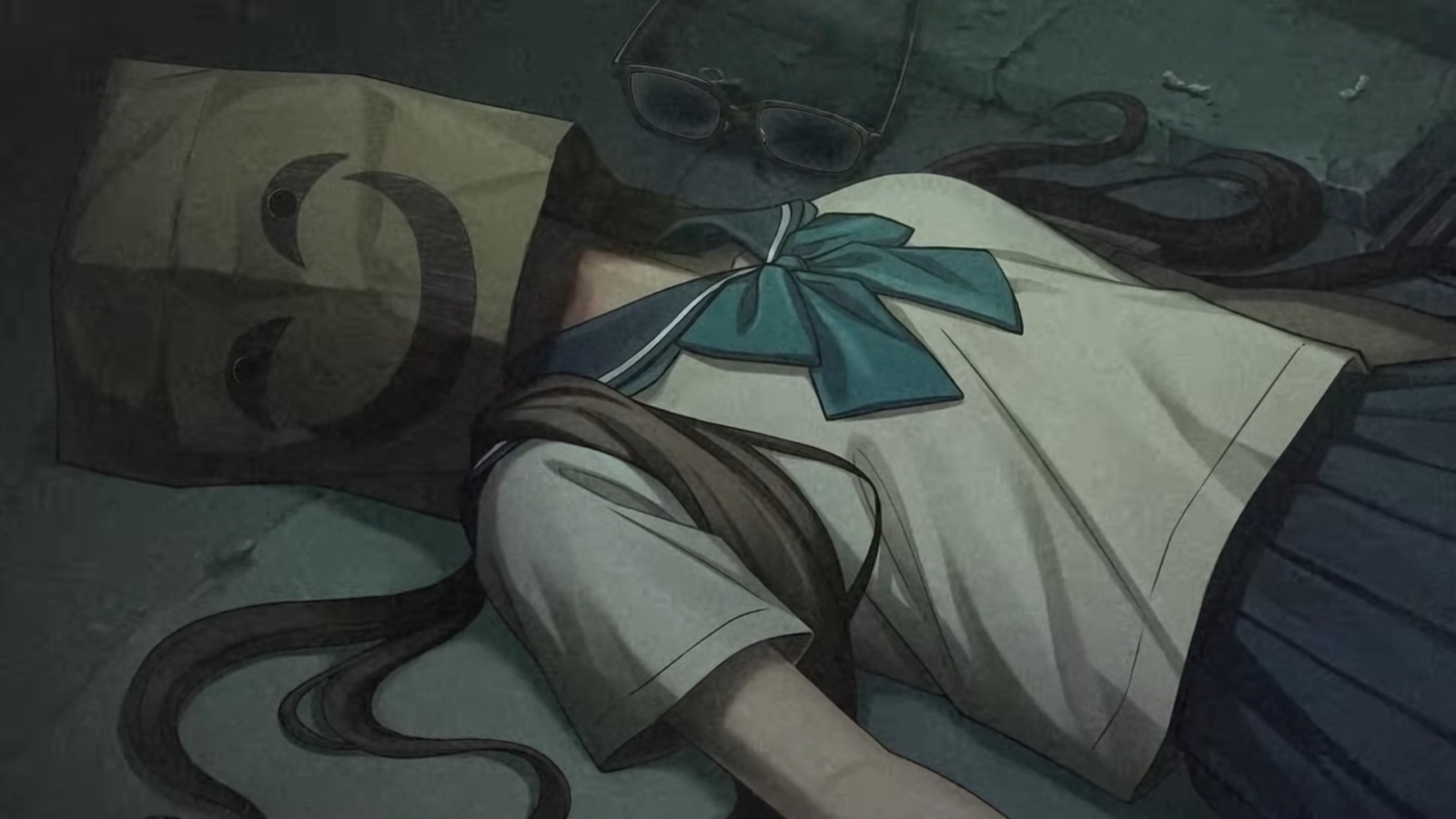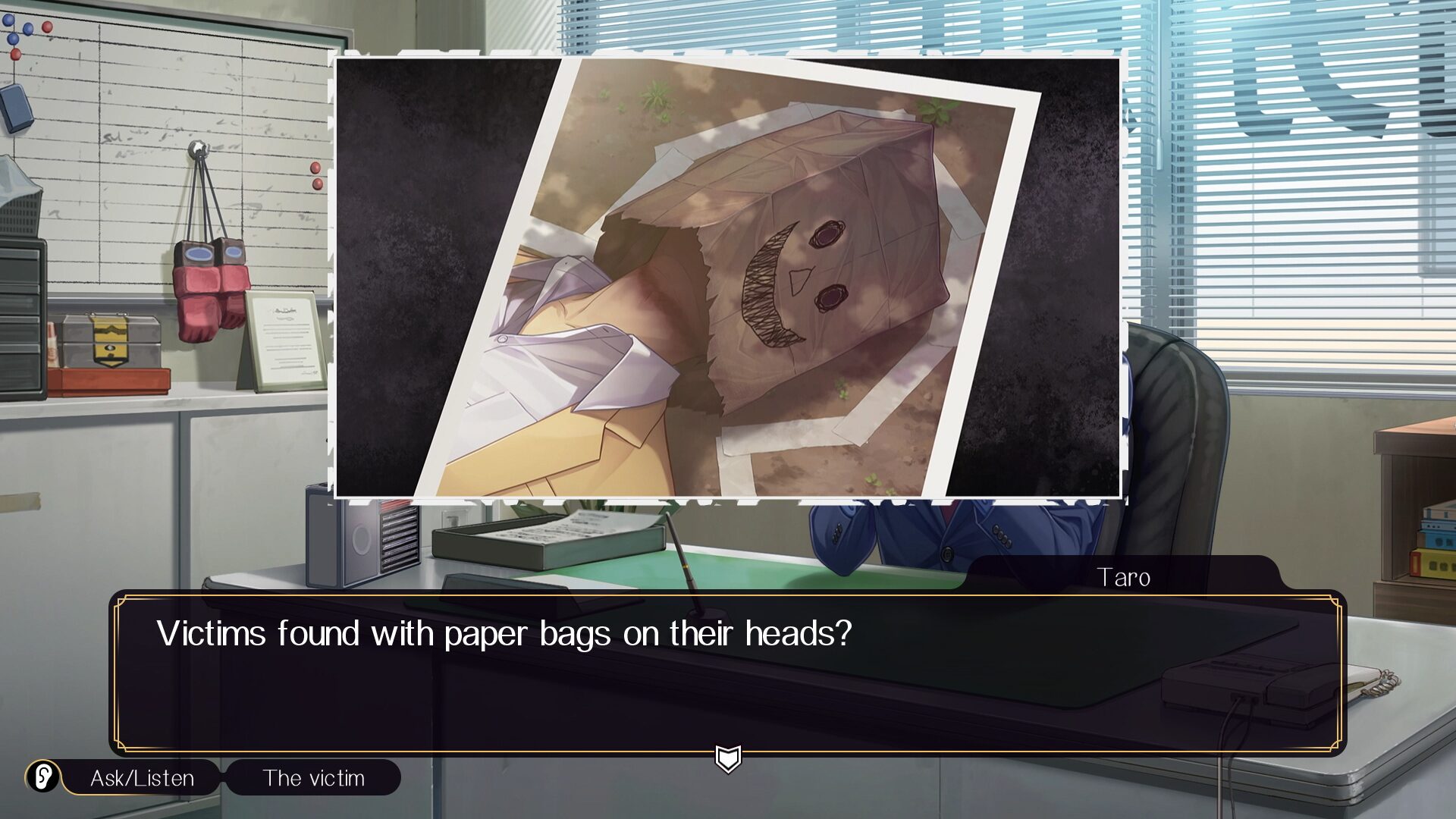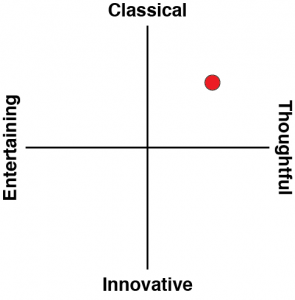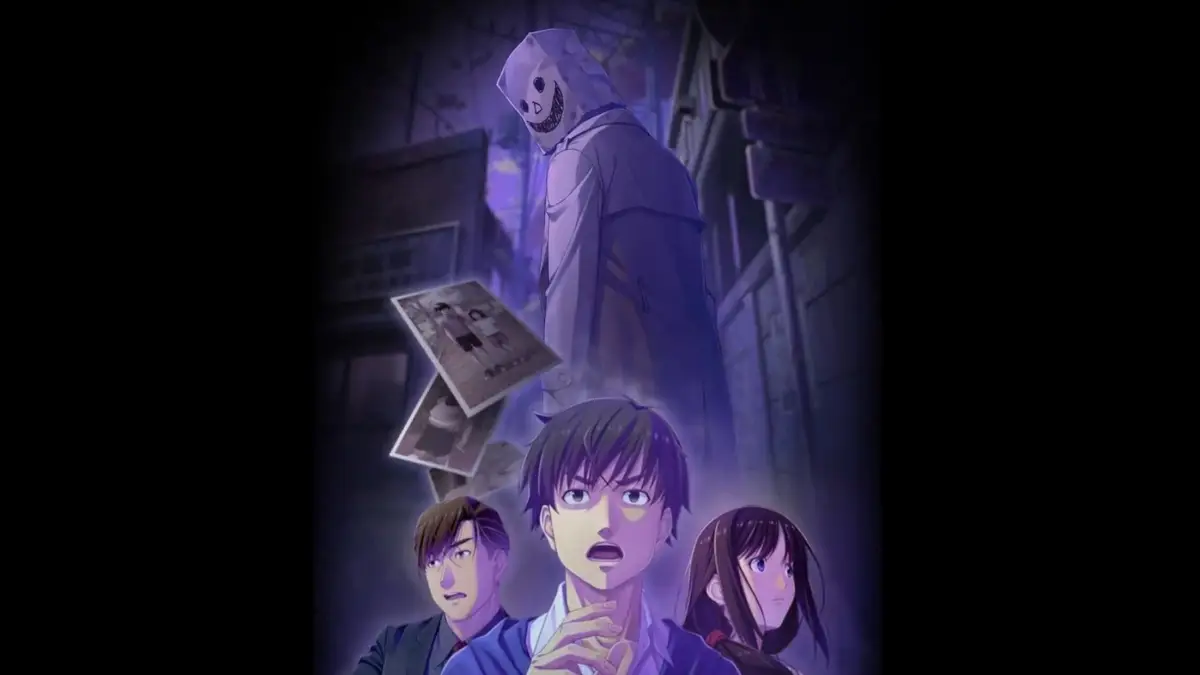Nintendo must have liked the response to the remake of the first two Detective Club titles when it released them on the Switch a few years ago. Now, decades after those games first appeared on the Famicom, we finally have a brand new entry in the series: Emio – The Smiling Man: Famicom Detective Club. It’s extraordinary.
Right from the start, the dark secret of this game is revealed. It seems there is a serial killer on the loose. He (we assume) committed a series of murders 18 years ago, killing a group of young girls, which gave rise to the urban legend of the “smiling man” – he wears a paper bag over his face and approaches crying girls. He then kills them and puts a smiling paper bag over their heads.
Today, a little boy is killed and his head is put in a paper bag. But is it the same killer? And if so, why did he turn his penchant for killing girls? And why the paper bags? This is very mysterious and very typical of Edogawa Ranpo.

This also makes sense considering that Edogawa Ranpo was famous for his “Boy Detectives Club” and this little series is called “Famicom Detective Club”. This can’t be a coincidence. For those who haven’t had the privilege of reading his works, Edogawa Ranpo was heavily inspired by the crime novels of Edgar Allan Poe (“Edogawa Ranpo” is a pseudonym and a Japanese derivative of Edgar Allan Poe). Many of his works focus on using deduction to solve a seemingly impossible crime and could in some ways be compared to the Western version of Arthur Conan Doyle, although Ranpo’s works tend to have a more supernatural tone and grotesque quality.
All of these narrative and thematic qualities play a big role in Emio. The “gameplay,” on the other hand, is largely sidelined so that you can enjoy the narrative for its strengths. The entire game is centered around following a trail of breadcrumbs by saying the right things, making observations, and then drawing conclusions. This is done through a menu interface that gives you options like “speak,” “see,” “use phone,” etc. It’s basically a retro-style point-and-click adventure.
Unfortunately, this means that sometimes you have to try and guess your way through by simply selecting each option in the menu and waiting to see which one advances the narrative. The developers have included a “think” option that makes the protagonist think about the case and gives you a hint as to what to do next. There is also a notebook that lists the facts of the case and fills up over time. Thanks to these two features, you’ll get stuck less often than in previous Famicom Detective Club games. But a little bit will still happen, and thank goodness it’s a visual novel because there are few consequences to guessing your way through these parts.

The big advantage of this being a new production, rather than a remake of two titles from decades ago, is that the narrative style has evolved considerably over the years and, as a result, Emio offers a much deeper and richer narrative. It takes time to reflect on the killer’s psychology, the characters themselves are more rounded and fleshed out, and the writing style is lively rather than efficient.
This is a very adult narrative – it’s not as explicit as the very adult horror mystery titles Spirit Hunter (Death Mark & Ng), but the game also doesn’t mince words when it comes to describing the extreme violence and psychopathy of a serial killer. At first, the dark narrative seems to clash with the rather light anime aesthetic, but as you play, this contrast actually starts to work, creating a visual and thematic dissonance that helps build unease around the events you’re witnessing.
Those production values are exceptional too, with beautifully rendered characters, detailed backgrounds, and a surprisingly large amount of animation helping to breathe life into what is essentially a very traditional visual novel experience with lots of reading material. The VN genre so rarely gets the big budgets – Idea Factory games are beautiful but static, relying on the talent of individual artists rather than budget to put together a more complex game. Experience Inc. does exceptional work with Death Mark but is struggling financially. Nintendo, on the other hand, has the resources to make something of this series, and the presentation fully reflects Nintendo’s capabilities.

To say anything else about Emio would be a disservice, because it’s a twisted, twisty mystery that’s best enjoyed unadulterated. If you’ve played the remakes of the first two Famicom Detective Club titles, you’ll get more of the same here, just with modern writing standards. That alone makes it a much more immersive experience, because the narrative in this thing is incredible.




